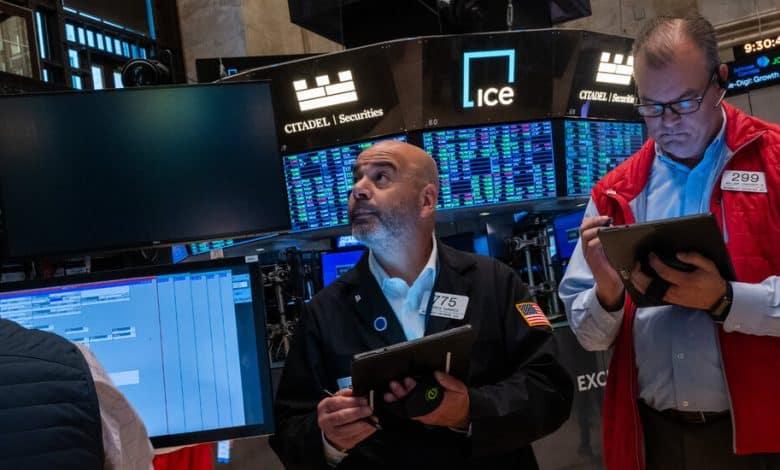Markets Keep Rising Despite Inflation Concerns


Stocks hit new highs on both sides of the Atlantic as the inflation picture improved slightly.Credit…Spencer Platt/Getty Images
Inflation euphoria goes global
Stocks in Asia and parts of Europe rose on Thursday as investors bet that new data showing inflation easing would finally persuade central bankers to lower interest rates from multidecade highs. The rally has pushed stock indexes on both sides of the Atlantic into record territory.
Another test comes on Thursdaywhen Walmart, a bellwether for U.S. consumer sentiment, reports quarterly results.
The market moves follow Wednesday’s Consumer Price Index report, which came in better than expected. The data showed that so-called core inflation, which strips out volatile food and fuel costs, rose by 3.6 percent on an annual basis last month, the lowest level in three years.
Inflation remains well above the Fed’s 2 percent target, but traders were encouraged by the results. The futures market now sees two Fed rate cuts this year, the first most likely coming in September.
Economists’ main takeaways from the report:
-
The good: Grocery, auto and airfare inflation eased.
-
The concerning: Housing inflation, a huge driver of the overall rate, showed only a modest improvement.
-
The puzzling: The Bureau of Labor Statistics accidentally published the data on the web ahead of schedule. But there were no obvious signs that traders (or their bots) had tried to profit from that mistake, with markets fairly quiet until just after 8:30 a.m. Eastern, the expected release time.
The S&P 500 is up more than 11 percent this year, blowing past most analysts’ 2024 forecasts. At the start of the year, the Wall Street consensus was for inflation to steadily ease, rate cuts to start as soon as the spring andmarkets to rally modestly. Stubbornly high inflation upended that prediction — yet stocks have outperformed many of even the most bullish predictions.
Stronger-than-expected corporate earnings have helped, despite concerns about consumers pulling back on spending. Another factor: The Fed has all but ruled out raising rates, giving investors the sense that monetary policy will be no more restrictive than it is today.
